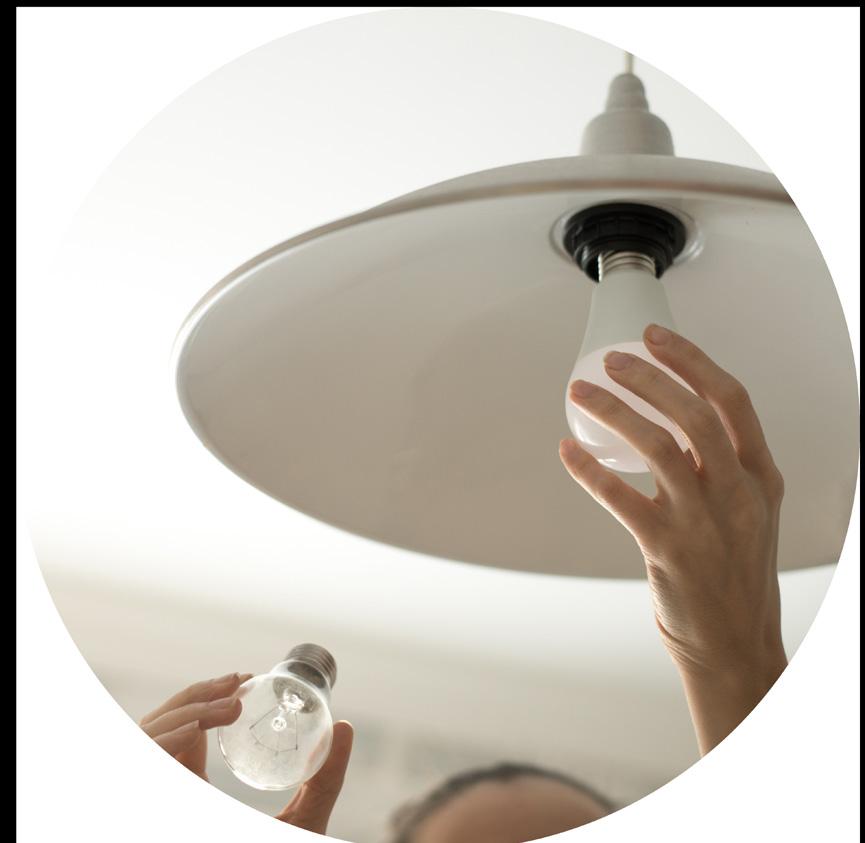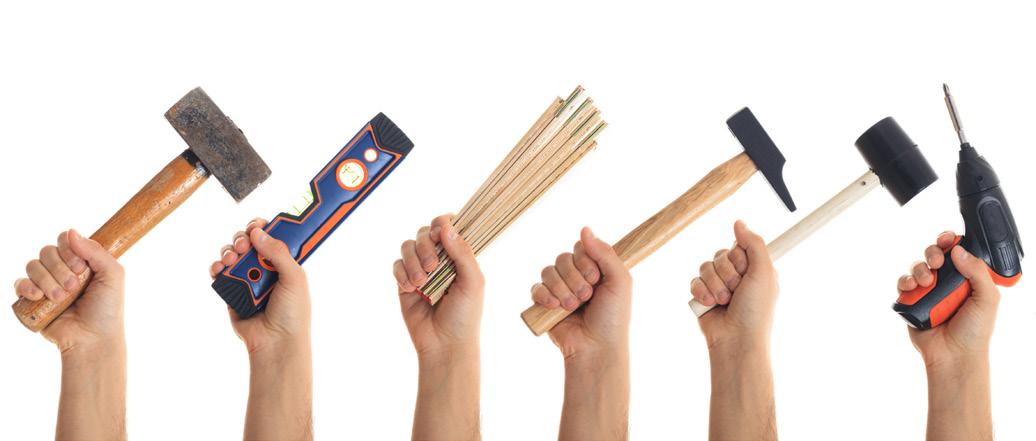
4 minute read
"Steve Says"
"STEVE SAYS"
Top tips from Steve Spooner, Property Services Team Manager, to help prevent problems in your home. You might even save some money on your energy bills!

1.
Be careful what you put down the kitchen sink - avoid putting fat down the sink wherever possible. If the fat can be solidified (e.g. butter) let it cool and dispose of it in the bin. If you need to dispose of liquid fat, run the hot tap for approximately three minutes before disposing.
2.
If you find water not coming out of your taps, don’t walk away leaving them open. Always turn them off in case the water comes back on when you’re out of the property. This will help prevent the risk of flooding.
3.
Use hair guards on hand basins and sinks. This will prevent hair and foodstuffs from blocking sinks. They can be bought for £2-£3 from most hardware shops.
4.
If you haven’t already done so, switch to LED energy saving bulbs. These bulbs last longer than traditional filament bulb and also require less energy – resulting in reduced energy bills.

5.
Once a week, boil a full kettle of water and pour down the sink, followed by approximately a third of a bottle of standard bleach. Finish by pouring another kettle of hot water in the sink. The process can be repeated for bathroom sink and bath. The hot water softens the ‘crust’, the bleach attacks & loosens it, and the final rinse washes the debris away.
There are some more environmentally friendly alternatives to using bleach in your home, these include vinegar, lemons and tea tree oil. More information here: https://bit.ly/2Nt6Yh3
6.
The idea that it’s cheaper to leave the heating on low all day is a myth. The Energy Saving Trust says having the heating on only when you need it is, in the long run, the best way to save energy, and therefore money. Getting the right temperature in your home is key to having the right level of warmth for the minimum use of fuel, whether that be oil, gas or electricity. What’s right for you will depend on your lifestyle and your family. It will be different for a single pensioner who spends most winter evenings in one room versus a family with children who may need the heating on in more rooms. As a rule of thumb, it makes sense to have less heat in corridors and hallways, and to have bedrooms at a lower temperature than living rooms. Try edging the thermostat in each room down a little at a time until you find the room temperature you want.
7.
In cold snaps it’s tempting to turn the thermostat up. However, it’s not the overall temperature of the system that’s the problem. It’s that it takes longer for the house to warm up because it’s starting at a lower temperature. So the best thing to do is adjust the programmer to put the heating on a bit earlier.
8.
If there has been a recent freeze or snow, check the boiler flue outlet for blockages. Also the plastic condenser pipe outside could be frozen.
9.
If you’re going away for more than a few days over the festive season or during the cold months, make sure the heating is set to come on automatically twice a day, with the thermostat set to approximately 14 degrees centigrade. This will help prevent frozen and burst pipes whilst you are away.
Out of hours hotline should be used for emergencies only
What is an emergency repair?
An emergency repair is any fault which threatens harm to persons or property. Only genuine emergencies will be dealt with out of hours. If an emergency call-out is not a genuine emergency, the costs incurred can be charged to you. If the contractor can not gain access to a property the resident can be charged for no-access.
When an emergency repair is reported we aim to have a contractor at your property within 24 hours (with some repairs being made safe within 4 hours).
0800 035 0003
24 hours a day, 7 days a week
All faults can be reported between 8am - 5pm
Out of hours emergency repairs can be reported between 5pm - 8am
For gas repair, please press option two and you will be passed onto TSG Building Services
Fire Safety
In our next issue, we will feature advice on fire safety at home. In the meantime, you can request a home fire safety visit from the London Fire Brigade.
The visit takes a maximum of 90 minutes- and aims to make you safer, any day, any time. www.london-fire.gov.uk/ safety/the-home/
Useful links:
Citizens Advice - Help paying your energy bills: https://bit.ly/2qx64He Useful links:
Toynbee Hall - City Advice: https://bit.ly/2WTJ7Kk











